Conversations on Quality • January 24-25, 2012 • MIT, Cambridge, Massachusetts
By Invitation Only

Cathy’s career is dedicated to openness, and particularly to leveraging possibilities at the boundaries of formal and informal learning to equalize educational opportunity. She has been a long-time advocate of open educational resources (OER). As the Director of the OER Initiative at The William and Flora Hewlett Foundation she managed investments totaling more than $100 million to harness the efficiency and effectiveness of knowledge sharing worldwide.
At the Carnegie Foundation for the Advancement of Teaching, Cathy spearheaded work in the areas of transparency and technology as a Senior Partner and the Vice President of Innovation and Open Networks. With the extended Carnegie team she launched a continuous performance improvement system to create alternative mathematics pathways for community college students.
Cathy has been instrumental in supporting many young organizations and currently sits on the Startl board, the Peer-2-Peer University board and serves on the advisory committee for MIT OpenCourseWare and the University of the People. She earned her Ph.D. in the economics of education from Stanford University and a B.A. in mathematics from Boston College.
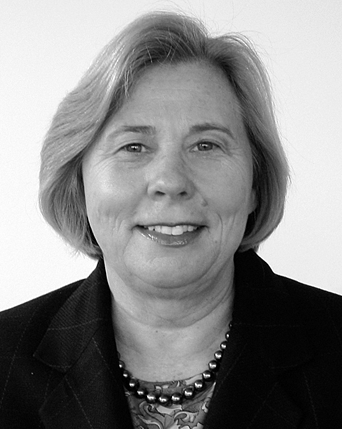
Judy B. Codding is managing director of the Pearson Foundation system of common core courses in literacy and mathematics. The K-12 courses will be digitally delivered and tablet based. Dr Codding was president and Chief Executive Officer of America’s Choice. America’s Choice offers one of the nation’s leading comprehensive school designs and highly regarded instructional systems in the core areas of English Language Arts and Mathematics. Since its inception, America’s Choice has worked in close partnership with states and districts, helping schools raise the academic performance of their students. She is the former vice-president for programs and Chief Operating Officer for the National Center on Education and the Economy (NCEE). Before joining NCEE, Dr. Codding was an award-winning principal of Pasadena High School, a large urban comprehensive high school serving predominately low-income African American and Latino students. Previously, Dr. Codding had been a teacher and principal at Bronxville High School and Scarsdale High School in New York. Dr. Codding was a charter principal of the Coalition of Essential Schools. She was an Associate in Education at the Harvard Graduate School of Education. She served as an education consultant to the Ministry of Education in the People’s Republic of China and the U.S. Department of Defense schools. She served as a commissioner on the California Commission for the Establishment of Academic Content and Performance Standards. Dr. Codding is co-author with Marc Tucker of Standards for Our Schools: How to Set Them, Measure Them, and Reach Them, 1998, with David Marsh of The New American High School, 1999, and with Marc Tucker of The Principal Challenge, 2002.
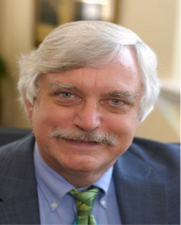
Chris’ fields of scholarship include emerging technologies, policy, and leadership. His current research includes seven grants from NSF, Qualcomm, the Gates Foundation, and the US Department of Education Institute of Education Sciences to explore immersive simulations and transformed social interactions as means of student engagement, learning, and assessment. In 2007, he was honored by Harvard University as an outstanding teacher, and in 2011 he was named a Fellow of the American Educational Research Association.
Chris has served as a member of the National Academy of Sciences Committee on Foundations of Educational and Psychological Assessment and a member of the 2010 National Educational Technology Plan Technical Working Group. His co-edited book, Scaling Up Success: Lessons Learned from Technology-based Educational Improvement, was published by Jossey-Bass in 2005. A second volume he edited, Online Professional Development for Teachers: Emerging Models and Methods, was published by the Harvard Education Press in 2006. His latest co-edited book, Digital Teaching Platforms, will be published by Teachers College Press in 2012.
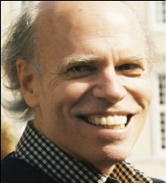
Jim is a member of the National Academy of Education. His book Sociolinguistics and Literacies (Fourth Edition 2011) was one of the founding documents in the formation of the “New Literacy Studies”, an interdisciplinary field devoted to studying language, learning, and literacy in an integrated way in the full range of their cognitive, social, and cultural contexts. His book An Introduction to Discourse Analysis (Third Edition 2011) brings together his work on a methodology for studying communication in its cultural settings, an approach that has been widely influential over the last two decades. His most recent books have dealt with video games, language, and learning. What Video Games Have to Teach Us About Learning and Literacy (Second Edition 2007) argues that good video games are designed to enhance learning through effective learning principles supported by research in the Learning Sciences. Situated Language and Learning (2004) places video games within an overall theory of learning and literacy and shows how they can help us in thinking about the reform of schools. His other recent books include: Good Video Games and Good Learning: Collected Essays (2007); How to Do Discourse Analysis (2011); Woman as Gamers: The Sims and 21st Century Learning (2010) and Language and Learning in the Digital World (2011), both written with Elizabeth Hayes. He has published widely in journals in linguistics, psychology, the social sciences, and education.
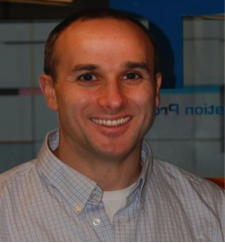
Eric’s research focuses on the development and use of computer games and simulations for building understanding of science and complex systems. His research explores simulations and games on desktop computers as well as mobile devices like smartphones and tablets. Eric’s work combines the construction of new software tools with implementation, research, and development of new pedagogical supports that transition the use of these tools to broader use in formal and informal learning. He is the co-author of the book, “Adventures in Modeling: Exploring Complex, Dynamic Systems with StarLogo,” and author of “Augmented Learning: Research and Design of Mobile Educational Games” from MIT Press. He has a new book coming out from MIT Press about the intersection of academia and private industry around technology-enabled classroom innovations. Klopfer is also the director of The Education Arcade, which is advancing the development and use of games in K-12 education, as well as co-founder and President of the non-profit Learning Games Network.

Dr. Vijay Kumar provides leadership for sustainable technology-enabled educational innovation at MIT. In his prior roles at MIT as Assistant Provost and Director of Academic Computing, as well at other institutions, Vijay provided leadership for units engaged in delivering infrastructure and services for the effective integration of information technology and media services in education.
Vijay was the Principal Investigator of O.K.I (Open Knowledge Initiative), a MIT-led collaborative project to develop an open architecture for enterprise educational applications. He has been a member of the Faculty Advisory Committee of MIT OpenCourseWare (OCW) since its inception. and a member of the steering committee for I-Campus, the MIT-Microsoft Alliance initiative for educational technology.
Vijay has served on the Applications Strategy Council for Internet2, as Chair of the governing Board of the Seminars on Academic Computing (SAC) Snowmass, CO and as trustee of the Corporation for Research and Education Networking (CREN). He currently serves on the Operations Board of Massachusetts STEM Advisory Council.
Vijay served as advisor to India’s National Knowledge Commission (2006- 2009) and to UNESCO on their strategy for open educational resources, open technology and policy. He is an advisor to the Open University of Catalonia, the Singapore University of Technology and Design and the Qatar Foundation International on educational technology and innovation. Vijay serves on the board of the New Media Consortium and is a Trustee of EDC, an international educational development organization.
Vijay’s research, as well as his extensive engagement as advisor and consultant with academic and professional institutions, is directed toward strategy, planning and implementing technological innovations for education. He is actively involved in efforts, such as those supported by the Hewlett Foundation, to advance the use of Open Educational Resources for improving educational access and quality. Vijay is a co-editor of a Carnegie Foundation book “Opening Up Education” (MIT Press, August 2008).
Vijay received a bachelor’s degree in Chemical Engineering and a master’s in Industrial Management from the Indian Institute of Technology, Madras, which has recently recognized him as a Distinguished Alumnus (2011). He received his Doctorate in Education from the University of Massachusetts, Amherst. USA.
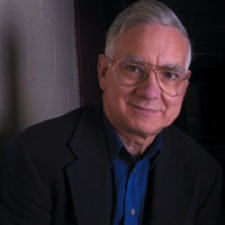
Dave attended Caltech (B.S. 1962) and Harvard (PhD 1968), and has been with Massachusetts Institute of Technology since 1970. His research accomplishments span modern atomic physics, including laser spectroscopy, atom-atom and atom-molecule collisions, atomic line broadening, van der Waals molecules, atom optics, atom trapping, precision mass measurement, atom interferometry both with and without Bose Einstein Condensates, and condensed matter physics using ultracold bosons and fermions. His group invented the MOT, a laser trap for cold atoms, as well as the Ioffe-Pritchard trap, both workhorses in the study ultracold atoms and molecules. He is a member of the National Academy of Sciences, and a fellow of the American Academy for Arts and Sciences, the American Association for the Advancement of Science, the American Physical Society and the Optical Society of America. He has won the Broida and Schawlow prizes from APS, the Max Born Award from OSA, and the IUPAP Senior Scientist Medal in Fundamental Metrology.
Dave is also a dedicated teacher. During the past few years he has developed a computer-based tutorial for elementary mechanics called Cybertutor, which has been used successfully in versions of 8.01: Physics I.
Dave is a better mentor than a researcher, however: he has mentored four winners of national thesis awards and three Nobel prizewinners (one of whom gave Dave his gold medal).
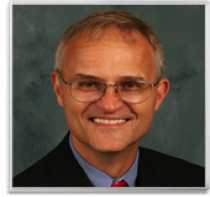
Bror is responsible for the research and development of innovative learning strategies, technologies and products across Kaplan’s full range of educational services offerings. He also oversees future developments and adoptions of innovative learning technologies and maintains consistent academic standards for Kaplan’s products and courses.
Bror most recently served as Senior Vice President and Chief Learning Officer at K12, Inc., where he was responsible for designing both online and off-line learning environments and developing new student products and services. Prior to joining K12, Inc., he was Vice President at Knowledge Universe, where he co-founded the testing and assessment division that became known as Knowledge Testing Enterprise (KTE). Saxberg began his career at McKinsey & Company, Inc. and later served as Vice President and General Manager for London-based DK Multimedia, part of DK Publishing, and education and reference publisher.
He holds a B.A. in Mathematics and a B.S. in Electrical Engineering from the University of Washington. As a Rhodes Scholar, he received an M.A. in Mathematics from Oxford University. He also received a Ph.D. in Electrical Engineering and Computer Science from M.I.T. and an M.D. from Harvard Medical School.

Emily works on digital media and learning for middle- and secondary-school students. Previously, she was the director of student services and engagement at ASU Online, Arizona State University’s online campus, where her responsibilities included student services, technology partnerships, and web development. Before joining ASU Online, Emily was special assistant and director of communications for the ASU provost, and led the development of ASU’s social networking app, ASU on Facebook. She was a speechwriter and policy analyst for the State University of New York system and once worked in email marketing for Bluefly.com, where she bought lots and lots of shoes.

Robert supports the Foundation’s digital media and college readiness work. Until recently he served at the Chief Research Officer at Institute of Play where he co-founded Quest to Learn, a games-based school in New York City. His research at Quest to Learn and on Gamestar Mechanic, a video game designed to support kids development of basic game skills, has focused on the potential game design and games-based environments have in supporting cognitive development. Robert has worked as a teacher, school principal and education consultant since 1988, including serving as teacher in Oakland, president of Teach For America’s national faculty and a school leader and designer in NYC.
Robert has a B.A. from Oberlin College, a Masters in Policy and School Administration from Bank Street College of Education and was a Stanford University Research Fellow. Robert completed a Ph.D in games and learning at New York University.
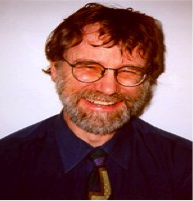
Kurt received a Ph. D. from MIT in 1983 in Computer Science, was a post-doc at BBN and Xerox PARC, joined the faculty of Carnegie-Mellon University in 1985, moved to the University of Pittsburgh in 1990 and joined ASU in 2008. He founded and co-directed two large NSF research centers (Circle; the Pittsburgh Science of Learning Center). He has published over 125 peer-reviewed publications, is a fellow in the Cognitive Science Society, and is on the editorial boards of Cognition and Instruction, and the International Journal of Artificial Intelligence in Education. Kurt’s research focuses on applications of artificial intelligence to education. Some of his projects are, starting from the most recent ones: LAITS, a system to help student learn by authoring intelligent tutoring systems; AMT, a meta-tutoring system combined with an affective learning companion; Why2-Atlas and Cordillera, two intelligent tutoring systems that pioneered the use of natural language dialogues for science teaching and have been shown to be just as effective as expert human tutors; Pyrenees, an intelligent tutoring system that successfully caused inter-domain transfer by implicitly teaching a meta-cognitive strategy; Andes, an intelligent tutoring system for a full year of college/high school physics that improves students grades by approximate a letter grade and is in daily use around the world; and Cascade, a highly accurate cognitive model of human students learning physics that accounts for the interaction of self-explanation and analogy.

Carina leads the work on the College Ready Team focused on teacher and student supports (including standards, curriculum, instruction and assessment issues).
She has worked in education policy at the national, state, and local levels. Carina served in the US Peace Corps Volunteer in South Africa and trained Peace Corps Volunteers in Botswana. She served as the Director of the Bureau of Assessment and Accountability at the Pennsylvania Department of Education, where she was responsible for implementing most of the No Child Left Behind reforms for the state. Previously, she worked in the Philadelphia School District as part of a $150 million Annenberg Challenge Grant and served as Director of Youth Policy and Education at the Washington, D.C.,-based National Center on Education and the Economy. Most recently, Carina served as the Executive Director of the Chez Panisse Foundation, which she led through a time of growth and transition, addressing a range of issues from implementing a healthy meal program school-district-wide to replicating a national model educational program.